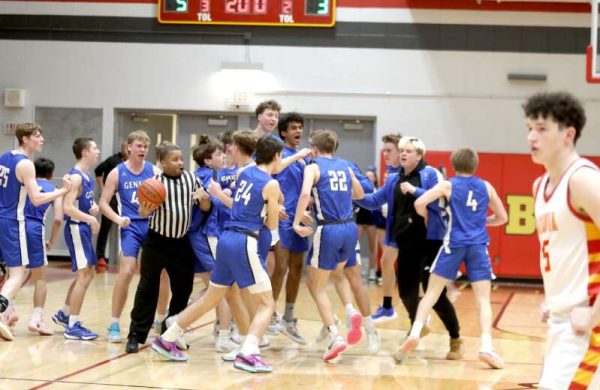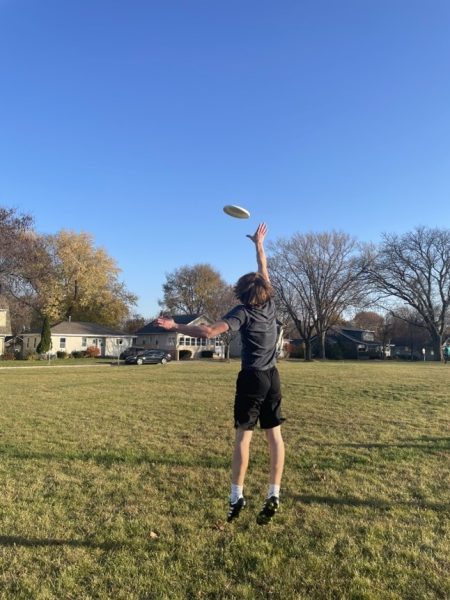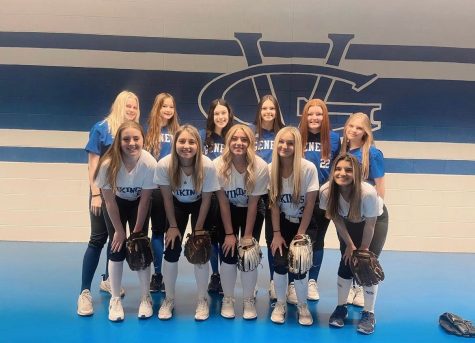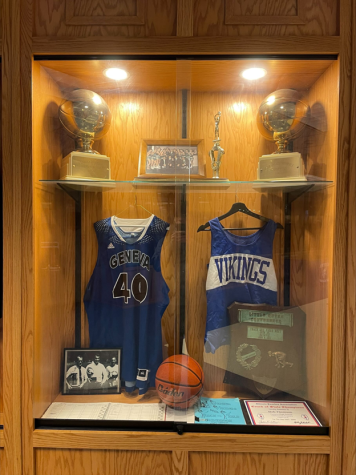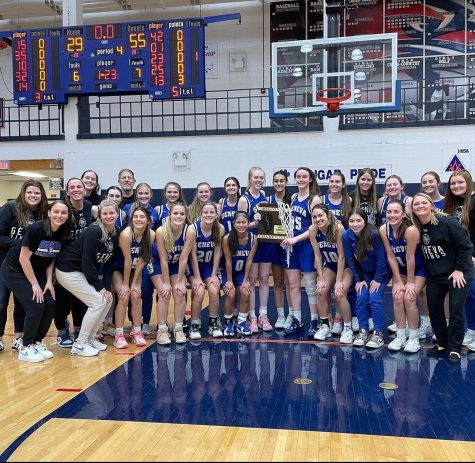Pebbles: GHS’s Newest Service Animal
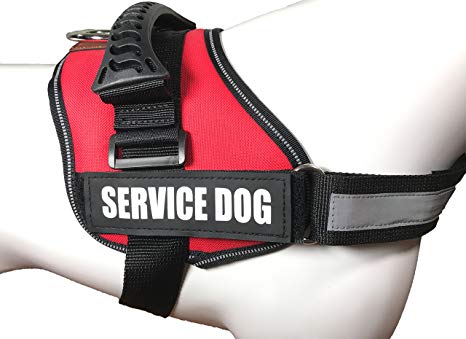
As the school year swings back to action, the school is filled with familiar faces. Though new GHS students sprinkle the halls, look at the ground and a furry, four-legged friend will meet your gaze. GHS’s newest resident is not your typical student. In fact, she isn’t a student at all. Pebbles, a short-haired golden retriever, is Geneva’s first service dog. The primary job for Pebbles within classes is to relieve stress for her owner throughout the day. However, students cannot go far without seeing her furry face shining in the halls. Dogs routinely steal the hearts of adults and children alike, so a dog walking the halls of GHS seems like undisputed cuteness overload. While seeing Pebbles walk down the halls may be a pleasant surprise in the day, Pebble’s presence has created new, but welcome, challenges for GHS.
When the term “service dog” is thrown around, the mind jumps to a dog helping a blind man cross the street. This is a narrow assumption that undermines the range of services these talented animals can perform. Service dogs can help people with nearly any kind of disability from autism to cancer. A common misconception about service dogs is that they are just a special kind of pet, not that different from the dog next door. Service dogs, in fact, are not defined as “pets” at all. Their services are required for daily functions and activities for their owners, going beyond the honored title of a man’s best friend. Service dogs can help to expand the independence of individuals with disabilities of any kind. The perfect pup awaits for people of both mental and physical disabilities, and Pebbles turned out to be the dog for the job in the life of a GHS student.
Having a household pet dog is hardly a surprising occurrence. The process of adopting can be complicated, but the decision is contained to a family or person’s interests. One of the first issues that can arise when adopting a pet is allergies. Over 15% of the entire population is allergic to household pets, so odds of having an allergy within in a household are relatively high, even if it is just a minor symptom. On a school wide basis, this applies to significantly more people. The number of allergies to dogs in the school are a factor that cannot be avoided in the process of integration. Reactions to dogs can range from a stuffy nose or an abundance of sneezing to chest pains and wheezing. The school can’t exactly have sick, miserable children running around coughing on everyone they come across. However, the school cannot ignore the needs of an individual student. In fact, according to Special Rules Related to Service Animals, having allergies to or fears of dogs are not valid reasons for excluding a service dog from the school. Solving these problems boils down to scheduling and placement. It is necessary for the school to arrange for students with any allergies to dogs to be in separate classes. This seems relatively obvious, but problems arise with the several unique classes GHS offers, many of which only have one or two available classes. The responsibility then shifts to the teacher, who must keep considerable distance between students with allergies and the service dog in seating plans. Dealing with the grand-scale of allergies across the school goes from the higher ups at the school all the way down to the individual student, and it is an issue that everyone at GHS will continue to combat.
Though problems for students can arise through the presence of dogs, Pebbles faces equal struggles through everyday encounters with students. No matter how tempting it is to pet Pebbles, students need to know that this behavior negatively affects Pebbles and her owner. Pebbles should be treated like any other student at GHS to keep her life as happy as possible in this new environment. Aside from restraining from petting Pebbles in the hall, students should ensure that they do not stick any gum under the tables. Though this should be common sense, the action has been prominent in high schools for what seems like the dawn of time, and, disgusting as it may be, is glaringly evident at Geneva. The issues of the gum go beyond basic sanitation, as gum is practically poison for dogs, and Pebbles is no exception. Like any student, the safety of Pebbles is a primary concern of the school, so throwing out any gum in a trash can and refraining from petting Pebbles in the hall can make her job both safer and easier. However, be sure to flash Pebbles and her owner a smile if you happen to them in the halls and make some of GHS’s newest students’ days brighter.

